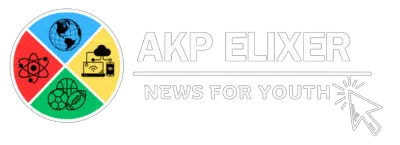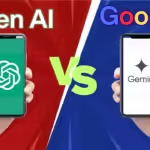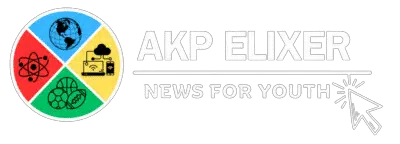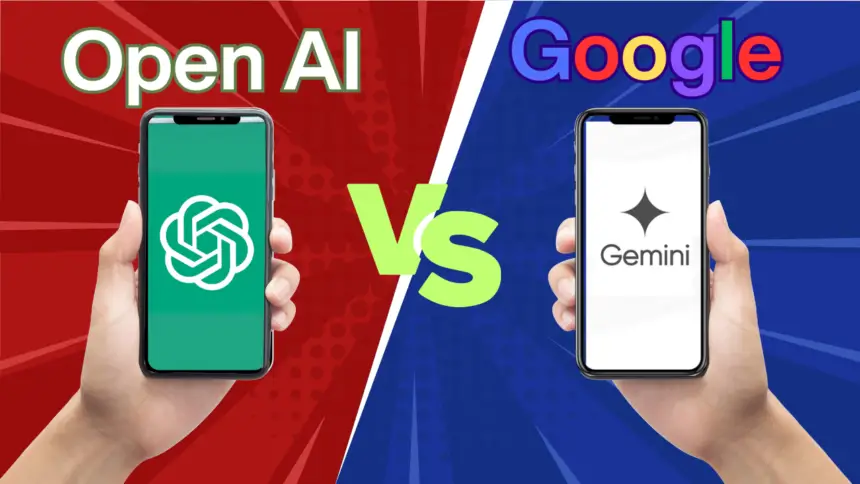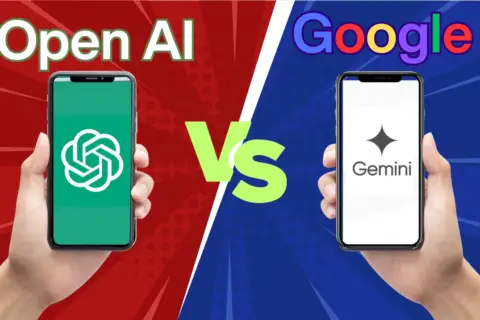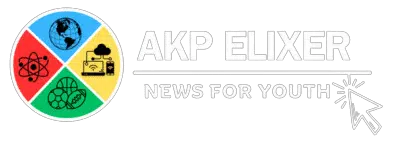ChatGPT vs Gemini : Which is Better?
In the fast-changing world of AI, two chatbots stand out: ChatGPT from OpenAI and Gemini from Google. Both are top-notch in natural language processing. They help with research, analysis, creative writing, and automating tasks1.
ChatGPT is known for its text skills, using the GPT-4o mini model. It’s great at answering tough questions, comparing things, and even discussing big ideas1. Gemini, on the other hand, uses the Gemini 1.5 Flash model. It has cool features like free AI image making and works well with Google apps1.
Choosing between ChatGPT and Gemini depends on what you need. If you want a smart and knowledgeable voice, ChatGPT might be for you. Gemini is better if you like Google’s interface and want to do more with images1.
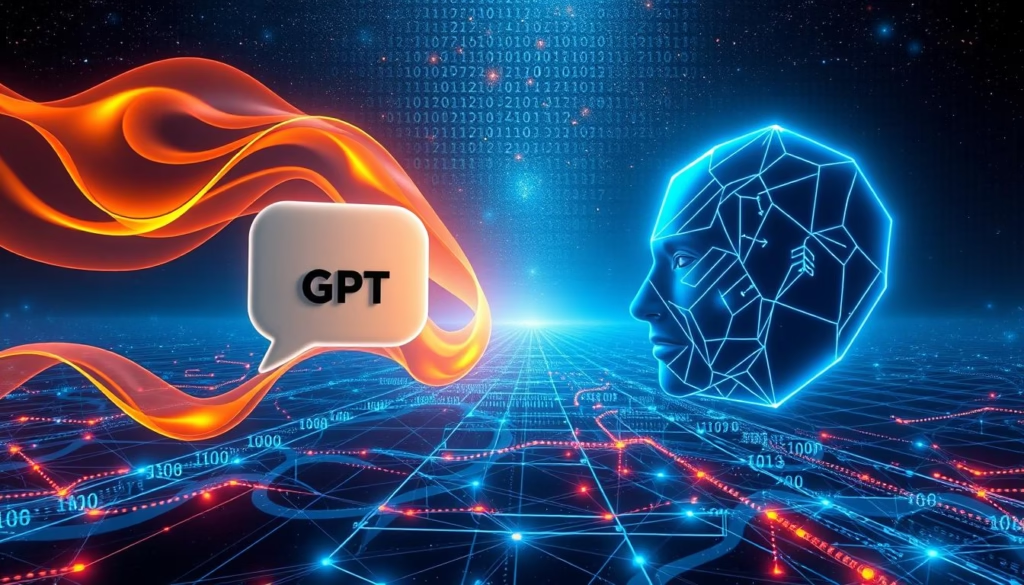
Key Takeaways
- ChatGPT and Gemini are advanced AI chatbots with unique capabilities and features.
- ChatGPT excels in text-based tasks and research, while Gemini offers multimodal features and free image generation.
- The choice between the two depends on the user’s specific needs and preferences, such as the desired level of authority, knowledge, and multimodal capabilities.
- Both chatbots continue to evolve and improve, offering new and enhanced features to cater to a wide range of users.
- Careful consideration of the features, performance, and pricing of each chatbot is crucial in determining the best fit for individual or organizational requirements.
Understanding AI Language Models
In the fast-changing world of artificial intelligence, large language models (LLMs) are making a big impact. These AI systems use huge amounts of text data to learn and grow. Now, they can do many tasks well, thanks to models like2 ChatGPT and Gemini.
What are Large Language Models?
Large language models are AI systems that understand and create human language. They use advanced algorithms to learn from lots of text. For example2, OpenAI’s GPT-4 and Google’s Gemini Ultra have learned a lot from text data.
ChatGPT can even create images with DALL-E. Meanwhile2, Gemini focuses on finding information online and in its own databases.
Evolution of AI Chatbots
The journey of AI chatbots has been amazing3. ChatGPT and Gemini are the latest examples. They can now do many things, like write creatively and analyze data3.
Gemini works with Google tools, and3 ChatGPT has a voice mode. These features show how fast this field is growing.
Impact on Modern Technology
2 ChatGPT and2 Gemini are changing many industries. They make work more efficient and creative. They also change the job market3.
These models are great for solving problems and finding new ideas. You can try them for free3. ChatGPT Pro costs $20 a month, and3 Gemini Advanced is $19.99 a month.
As artificial intelligence gets better, large language models like ChatGPT and Gemini will be key. They help us solve big challenges and explore new possibilities.
Core Features Comparison
ChatGPT and Google Gemini are both top-notch in AI text generation. They help users make summaries and have conversations. ChatGPT is special because it understands the context of conversations, something Google Gemini doesn’t do yet4.
Both can make images and take them as input. But Google Gemini also lets you use voice prompts, which ChatGPT doesn’t offer for free4.
When it comes to cost, both have free versions. ChatGPT Plus and ChatGPT Team cost $20 and $30 a month. Google Gemini Advanced is $19.99 a month4.
Google Gemini can use the internet and answer unlimited questions. The free version of ChatGPT might not have the latest info4.
ChatGPT uses OpenAI’s GPT-4 model. Google Gemini uses Google’s Gemini Ultra, Pro, or Nano models4.
Both support many languages. ChatGPT supports over 20 languages and programming languages. Google Gemini supports more than 40 languages4.
Google Gemini can analyze images and write detailed captions. This is limited in ChatGPT as of August 20244.
The ChatGPT Plus plan has extra features. It includes faster responses, internet access, and DALL-E for making images4.
Both can create code from natural language prompts. Gemini is better at this4.
It’s important to remember that both AI assistants can make mistakes and have privacy concerns. This is because they are still being developed and collect personal info4.
| Feature | ChatGPT | Google Gemini |
|---|---|---|
| Release Date | December 20235 | November 20225 |
| Multimodal Capabilities | Text, limited image creation4 | Text, image creation, voice prompts4 |
| Information Recency | Up-to-date5 | Up-to-date5 |
| Custom GPT Support | No5 | No5 |
| Conversation Modes | Text-focused5 | Text, voice5 |
| Pricing | Free plan, $20+ paid plans4 | Free plan, $19.99+ paid plans4 |
| Strengths | Text-based tasks, research5 | Creative tasks, image generation5 |
| Web Integration | Access to web, provides sources5 | No web access, lacks sources5 |
| Explanation Clarity | Satisfactory5 | Excellent5 |
| Image Creation | Limited in free version5 | Available in free version5 |
| SEO Optimization | Better for keyword research5 | Better for meta descriptions5 |
| Backlink Generation | Assistance available5 | Assistance available5 |
In summary, ChatGPT and Google Gemini have many AI features. Each has its own strengths. Businesses and individuals should think about what they need before choosing5.
AI is becoming more popular, with 35% of businesses using it and 84% seeing it as a competitive advantage6. The competition between ChatGPT and Google Gemini will likely get fiercer6. With the generative AI market expected to grow to $1.3 trillion in the next decade6, these AI assistants will keep getting better to meet our needs.
ChatGPT vs Gemini: Model Architecture and Capabilities
ChatGPT and Gemini are two top AI language models with different approaches. ChatGPT uses the GPT architecture, which is great at understanding and creating natural language7. Gemini, part of Google’s AI family, uses models like BERT and T5, and has its own design7.
GPT Architecture Overview
The GPT architecture in ChatGPT uses attention mechanisms for better text understanding7. It’s trained on a wide range of texts, from books to the internet. This lets it handle many tasks, like customer support and creating content7.
Gemini’s Technical Framework
Gemini, built on Google’s transformer model experience, might be as big or bigger than ChatGPT7. Its Mixture-of-Experts (MoE) design makes training and serving more efficient. It picks the right neural network paths for each input, boosting its performance8.
Processing Power Comparison
ChatGPT is great at text tasks like talking, completing text, and translating languages. Gemini, however, can handle text, images, audio, and video8. Its big context window lets it look at lots of data at once, perfect for complex analysis8.
In short, ChatGPT and Gemini take different paths in AI language modeling. ChatGPT is all about text, while Gemini can do more, like work with images and audio. Your choice depends on what you need78.
Natural Language Processing Abilities
ChatGPT and Google Gemini are both top-notch in natural language processing (NLP). They can grasp the meaning behind words, including the subtle stuff9. ChatGPT is better at understanding language, while Gemini is great at creating new text and adapting quickly9.
ChatGPT is better at solving problems and thinking logically9. But Gemini is better at explaining things in simple terms, like “Explain Like I’m Five” (ELI5)9. Gemini also makes better choices when faced with tough ethical questions9.
Gemini is a bit better at understanding different languages and cultures910. It can handle text, images, and videos, making it versatile10.
Both ChatGPT and Gemini are great at NLP, but in different ways10. ChatGPT is known for its deep language understanding and human-like responses10. Gemini’s advanced NLP and cultural awareness give it an edge in some areas10.
| Feature | ChatGPT | Gemini |
|---|---|---|
| Coding Proficiency | – | Outperformed |
| Natural Language Understanding (NLU) | Superior | – |
| Creative Text Generation & Adaptability | – | Winner |
| Reasoning & Problem-Solving | Winner | – |
| Explain Like I’m Five (ELI5) | – | Superior |
| Ethical Reasoning & Decision-Making | – | Better |
| Cross-Lingual Translation & Cultural Awareness | – | Slightly ahead |
“Both ChatGPT and Gemini excel in natural language processing, demonstrating strong abilities in understanding context, nuances, and subtleties in language.”
Pricing and Accessibility
ChatGPT and Gemini offer different pricing plans to meet various user needs11. Google’s Gemini Advanced and OpenAI’s ChatGPT Plus cost $20 a month11. Microsoft’s Copilot Pro, based on ChatGPT-4, also costs $20 a month11.
Free vs Paid Plans
Both ChatGPT and Gemini have free versions for users to try11. Gemini Advanced includes Google’s top AI model, Gemini Ultra 1.0, and 2 terabytes of cloud storage11. ChatGPT Plus gives access to GPT-4 and Dall-E 3, with a special GPT store feature11.
Enterprise Solutions
6 35% of businesses use AI, with healthcare and retail leading at 68% and 72%6. ChatGPT and Gemini offer custom solutions for businesses, with more features and options6.
Value Proposition Analysis
6 84% of businesses see AI as a growth driver6. The AI market is set to hit $305 billion in 2024, growing to $738 billion by 20306. Thus, the cost and access to AI like ChatGPT and Gemini are key for businesses6.
6 As AI demand grows, evaluating ChatGPT and Gemini’s value is crucial for businesses6.
Research and Information Retrieval
ChatGPT and Gemini are leading in AI-assisted research and info retrieval. ChatGPT uses GPT-4 to give current info with correct sources, even for free12. This is great for those needing solid data for studies, projects, or making decisions.
Gemini can find info too, but might need more prompts for source citations13. It can browse the web in real-time, but its answers can be wider and less precise than ChatGPT’s.
| Feature | ChatGPT | Gemini |
|---|---|---|
| Information Accuracy | Provides up-to-date information with accurate source citations12 | May require additional prompting for source citations, provides broader information13 |
| Data Retrieval | Excels at providing well-researched and referenced data12 | Can retrieve information, but responses may be less targeted13 |
| AI-Assisted Research | Valuable tool for users seeking reliable and comprehensive research support12 | Offers real-time web browsing capabilities for data access, but may require more prompting13 |
ChatGPT and Gemini show their strengths in research and info retrieval. They are key AI tools for many uses1213.

Creative Content Generation
AI writing tools like ChatGPT and Google Gemini are top-notch. They can change their writing style to fit any need, creating engaging content5. ChatGPT tends to write more detailed content, while Gemini’s answers are often shorter and more to the point14.
Writing Capabilities
These AI models are amazing at creating content. ChatGPT can write like a human, with complex and sophisticated text15. Gemini, meanwhile, is great at matching the tone and voice you want5.
Content Quality Assessment
It’s important to check how good the content is. ChatGPT often gives detailed and well-researched answers, thanks to its vast knowledge base14. Gemini, however, is better at keeping things short and on point, making it good for specific tasks5.
Style Adaptability
Both ChatGPT and Gemini can change their writing style easily. ChatGPT can go from formal to casual, while Gemini can understand and talk like a human15. This flexibility makes them great for many content creation tasks, from blog posts to marketing5.
“Both ChatGPT and Gemini have the ability to simplify complex concepts, making them valuable assets for understanding a wide range of subjects.”
Choosing between ChatGPT and Gemini depends on what you need. ChatGPT is great in some areas, but Gemini’s connection to Google and focus on simplicity make it a strong choice for efficient content creation51514.
Image Generation and Analysis Features
When it comes to AI image creation and visual analysis, ChatGPT and Gemini have different strengths. ChatGPT only offers image features to paid users with DALL-E 3. But Gemini gives everyone free access to its image tools16.
Gemini is better at making images and placing text in them16. ChatGPT-4, however, is great at spotting objects and scenes, even small details like brand names16.
ChatGPT-4 is also top-notch at describing images in detail16. Gemini gives clear descriptions but might miss some details16.
ChatGPT-4 has amazing multimodal AI skills, understanding images in a deep way16. Gemini does well too, but might get lost in complex images16.
In short, Gemini makes image tools easy to use and flexible. ChatGPT-4 is a leader in accuracy and detailed image understanding, especially with DALL-E. Your choice depends on what you need in AI image creation and visual analysis.
Integration Capabilities
AI language models are getting better at working with different apps and systems17. ChatGPT and Gemini are great at this, meeting the needs of users and businesses.
Third-party App Support
ChatGPT has become very popular since it came out18. It’s used for customer service, making content, and educational tools18. It can handle many topics and tasks, from simple chats to complex questions18. Companies can make ChatGPT work better for their needs or industry18.
Gemini is made for specific areas, giving deeper insights18. It’s still working on being part of Google Apps17. But Gemini is easier to use than ChatGPT18.
API Availability
ChatGPT lets developers use its features in many apps17. This helps with automating workflows and growing app ecosystems17. For example, it works with Zapier to make social media easier by automating posts19.
Gemini uses Google’s tools with Gemini Extensions, offering quick info and deep analysis19. This makes Gemini reliable for accurate data17.
Both ChatGPT and Gemini are strong in integration, but in different ways17. They meet different needs based on the project, how you talk, and how reliable you need it17. Companies can get help from experts like Sprout Media Lab to use these AI models for marketing and workflow18.
User Interface and Experience
ChatGPT and Gemini have different ways to interact with their AI. ChatGPT has a simple text interface with a talk-to-text feature. This makes it easy for users to chat with it20. Gemini also has a text interface but adds real-time voice conversations with Google Gemini Live. This makes it more interactive.
ChatGPT is seen as more user-friendly and works well with other tools20. Gemini is better for research because it offers real-time internet and better content management20.
Both ChatGPT and Gemini keep getting better. ChatGPT 4 now has voice and image search in its PRO version. Gemini 1.5 Pro has advanced understanding and reasoning skills for different types of input.
The chatbot interfaces of ChatGPT and Gemini show how AI UX design and interaction design are improving. They highlight the need for AI that is easy to use and meets different user needs.
| Feature | ChatGPT | Gemini |
|---|---|---|
| Interface Design | Clean, text-focused with talk-to-text option | Text-based interface with Google Gemini Live for voice conversations |
| Platforms and Integration | Highly flexible and easily integrates with various platforms21 | Excels in seamless integration with Google’s products21 |
| User Friendliness | More user-friendly across different platforms20 | Perceived as less user-friendly compared to ChatGPT20 |
| Research and Information Retrieval | Suitable for personal assistance and creative writing21 | Excels in accurate information retrieval and data-driven insights21 |
The differences in user interface and experience between ChatGPT and Gemini show how AI models meet different user needs. This highlights the growth in AI UX design and chatbot interface development222120.
Data Privacy and Security Measures
ChatGPT and Gemini both focus on keeping user data safe. ChatGPT stores all user inputs, which raises privacy issues. OpenAI also collects geolocation data and other personal info from users23. Gemini, on the other hand, doesn’t share how it trains its data, making it hard to know if it’s safe24.
Both platforms use strong encryption to keep data safe. ChatGPT uses advanced encryption for data in transit and at rest. Gemini benefits from Google’s encryption, protecting against breaches25. ChatGPT also lets users control their data, including deleting conversation history25. Gemini uses Google’s privacy controls, giving users more control over their data25.
Both platforms follow industry standards for data protection. OpenAI and Google comply with GDPR and other laws25. Gemini lets users choose how long their data is kept, offering more control24. Gemini’s data handling is more transparent, with clear information available from the start24.

In summary, both ChatGPT and Gemini take data privacy seriously. But Gemini seems to offer more control and transparency over data handling. This makes Gemini a more responsible choice for users2524.
Real-time Information Access
The world of AI chatbots is changing fast. ChatGPT and Gemini are leading the way with their real-time info access. This is key for giving answers that are both timely and relevant26.
Web Browsing Capabilities
ChatGPT’s data is from January 2022. But Gemini can browse the web in real-time26. This makes Gemini better at keeping up with new events and trends26.
Information Updates
Gemini’s design lets it update its knowledge fast. It can give answers based on the latest info, unlike ChatGPT26.
Gemini’s real-time info makes its answers more relevant. It can talk about current events and new tech in real-time26.
Web-connected chatbots are getting better at accessing info in real-time26. Gemini’s skills in this area make it a strong choice. It offers a dynamic AI experience that keeps up with the world26.
Performance Metrics and Speed
ChatGPT 4o and Gemini Advanced are fast in their AI responses. ChatGPT 4o quickly gained 1 million users in just five days after its launch on November 30, 202227. Google Bard, Gemini Advanced’s predecessor, started in March 202327.
Gemini Advanced takes 5 to 7 seconds to respond, while ChatGPT 4o is faster at 2 to 3 seconds27. This speed boost comes from ChatGPT 4o’s efficiency, cutting costs by 50% compared to GPT-427.
ChatGPT 4o can handle text, images, and sound quickly27. Gemini Advanced, from Google DeepMind, also responds well to text, audio, and images27. It uses Google’s vast knowledge and real-time data for accurate info27.
Each AI model has its own strengths28. ChatGPT is great at customer service and creative writing28. Claude is precise in ethical and regulated areas, aiming to reduce bias28. Gemini excels in complex research, offering evidence-backed answers28.
The speed and efficiency of these AI models are key to their success. As technology advances, we can look forward to even quicker and more capable AI models like ChatGPT 4o and Gemini Advanced2728.
Conclusion
Choosing between ChatGPT and Google Gemini depends on what you need. ChatGPT is great for text tasks like writing and research5. It’s also good for creative writing and deep discussions5.
Google Gemini, however, offers a more interactive experience. It includes voice commands, advanced image making, and works well with Google Workspace5. Both AI chatbots are getting better at understanding and creating content125.
The future of AI looks bright for both ChatGPT and Google Gemini. ChatGPT is strong in text tasks, while Gemini is better for a full AI experience5. Your choice will depend on what you need most from an AI assistant125.
The rivalry between ChatGPT and Google Gemini will push AI forward. This will help everyone in many fields5. AI is already changing how we find information and do tasks5. The future of AI assistants is exciting and will change our lives125.
FAQ
What are the key features of ChatGPT and Gemini?
ChatGPT, made by OpenAI, is great at handling text tasks and research. Gemini, from Google, can do more, like making images and understanding voice prompts.
How do the architectural differences between ChatGPT and Gemini impact their performance?
ChatGPT uses the GPT architecture, while Gemini has Google’s own AI framework. Both use advanced neural networks but work differently.
How do ChatGPT and Gemini compare in terms of natural language processing abilities?
Both are very good at understanding language, including its subtleties. They can have conversations that feel almost human.
What are the pricing options and subscription models for ChatGPT and Gemini?
ChatGPT has a free plan and a Plus subscription for $20/month. Gemini offers a free version and an Advanced plan for $19.99/month with a two-month free trial. Both have enterprise plans for more features.
How do ChatGPT and Gemini compare in their research and information retrieval capabilities?
ChatGPT is better at finding current information, even in its free version. Gemini can find info too, but might need more prompts and sometimes gives less specific sources.
What are the key differences in the creative content generation abilities of ChatGPT and Gemini?
Both are great at making creative content like articles and stories. ChatGPT’s content is often more detailed, while Gemini’s is more direct and to the point.
How do ChatGPT and Gemini differ in their image generation and analysis features?
Gemini offers free image making and analysis, while ChatGPT’s users need to pay for these features. Gemini’s images are usually more accurate and flexible, especially for text in images.
What are the key advantages and disadvantages of ChatGPT and Gemini in terms of real-time information access and performance?
ChatGPT is better at getting current web info, making its responses more up-to-date. Gemini also gets real-time info but might need more specific prompts. Both are fast, but Gemini is better with images and multimodal tasks.

